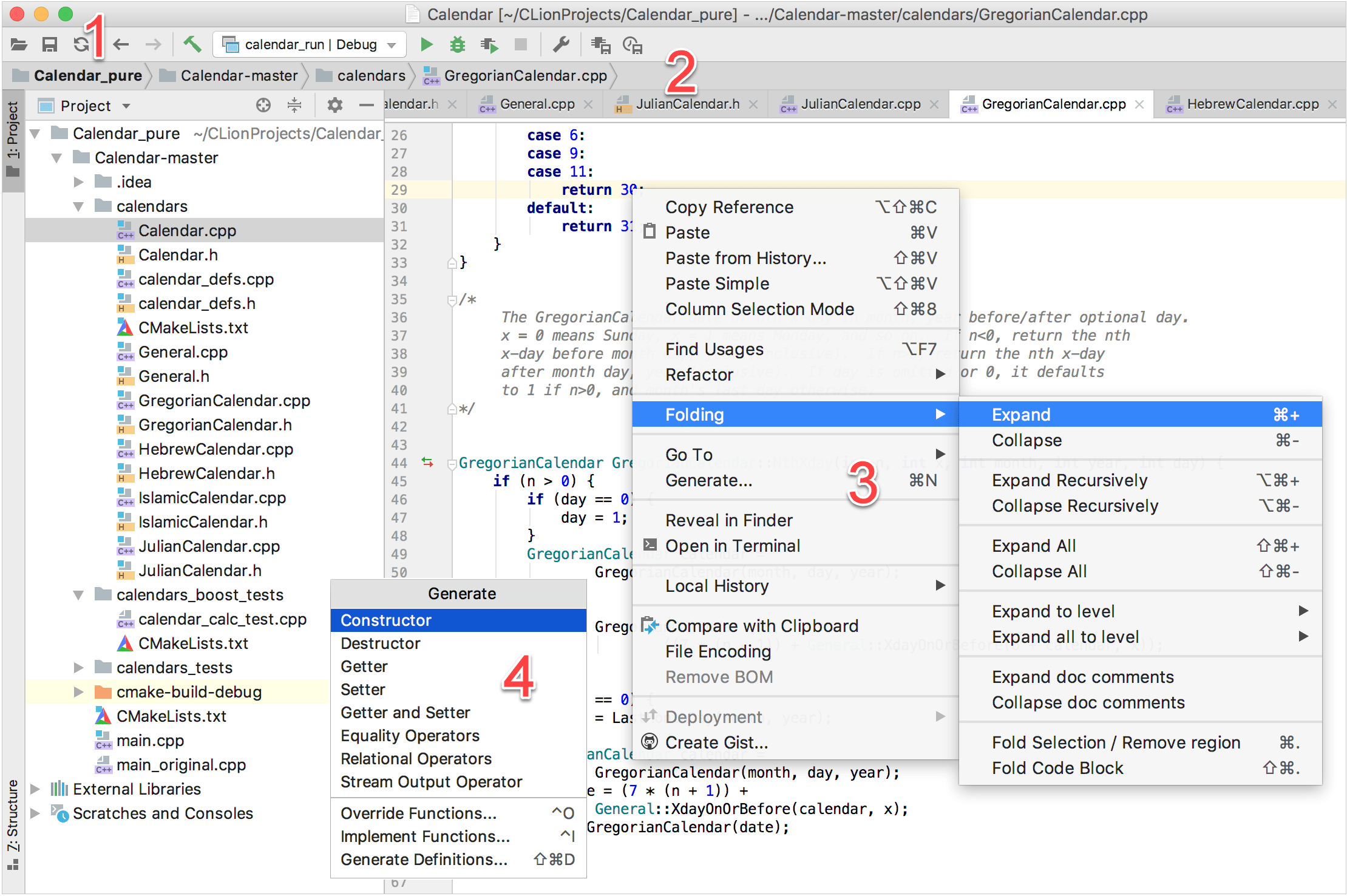Menus and toolbars
CLion menus and toolbars contain commands that affect the entire project or large sections of the project. To apply a command to the current context, use context-sensitive popup menus. Most of the commands have an associated keyboard shortcut to enable quicker access to it.
Use menu items with a checkbox in the View menu to show or hide the main elements of the CLion window. For example, if you want to show the main toolbar, select View | Appearance | Toolbar.

Main elements of CLion window
Main menu and toolbar– this area contains commands for opening and creating projects, code refactoring, running and debugging applications, keeping files under version control, and more.
CLion for Linux features the Macintosh-style menu – a horizontal menu bar attached to the top of the screen.
The native (global) menu is enabled in the Unity desktop environment out of the box. If you use another desktop environment, make sure that the global menu is supported and enable it manually.
Navigation bar– this is a quick alternative to the Project tool window.
Context menus– these menus are available with a right-click and contain commands applicable to the current context.
Popup menus– these menus contain commands applicable to the current context.
Tips and tricks
Show or hide the main elements of the CLion UI by using the View menu.
Descriptions of the actions from menus and toolbar buttons are displayed in the left side of the Status bar.
If you know which action you want to perform, but do not know where to find it, press Ctrl+Shift+A, type the action name, and select it from the suggestion list.
The Linux native menu
In CLion for Linux, you can use the Macintosh-style menu – a horizontal menu bar attached to the top of the screen. By default, the Linux native menu is enabled.
Disable the native menu
Press Ctrl+Shift+A to open the Find Action dialog, type
Experimental features, and press Enter.Clear the checkbox next to the linux.native.menu option, apply the changes, and close the dialog.
Restart CLion.
note
The native (global) menu is enabled in the Unity desktop environment out of the box. If you use another desktop environment, make sure that the global menu is supported and enable it manually.